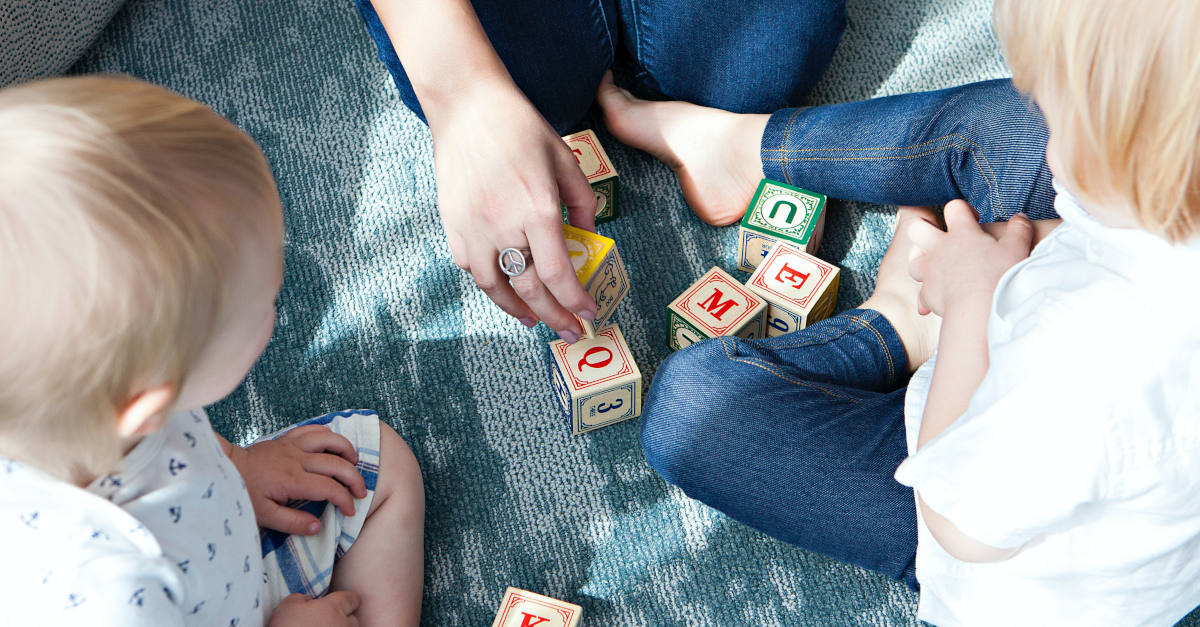
Children’s Mental Health: 7 Tips For Healthy Early Stages
Every parent wants the best for their kids, this includes everything from physical well-being to their children’s mental health. But it’s not always easy to navigate the complex waters around their development. Here is some useful information and tips you can use for the early stages of development.
WHY EARLY STAGES ARE VITAL
Traumatic events in the early stages of children’s mental health have prolonged effects on the mental health of an individual. The brain, in early childhood, is at its most vulnerable. Bad experiences negatively impact its development, increasing the risks of early life adversities. These adversities are a major risk factor for the development of various behavioral and psychological problems in later life.
Research studies report that children who experience maltreatment have a higher rate of developing depression, anxiety, PTSD, suicidality, and other mental health disorders.
Also, distressing early life events contribute to higher drug dependence in later life. This is the reason why healthcare experts urge parents to focus on the early childhood mental health of their children. Healthy early childhood mental environments are very beneficial for the healthy psychological and behavioral development of an individual. The greater the start, the more pleasant will be life will be later on.
WHAT IS CHILDREN’S MENTAL HEALTH IN EARLY STAGES?
Early childhood mental health refers to the social, emotional, and psychological development of children in their early life. It’s their ability to explore, learn, make relationships, communicate, or express their emotions, and finally respond to relationships and the care given to them.
Note: The word early childhood refers to the first 3-4 years (or maximum 5) of a child’s life.
It’s the time when he/she is learning to function both, socially and emotionally. Whatever the children see or experience is likely to stay with them for a lifetime. It’s when their brain, and especially mental health, is growing. They are at the age of exploring and learning, they’ll perceive the world through the actions and treatment of the people around them.
Experts from the Center on the Developing Child, Harvard University say that the early experiences of a child, whether negative or positive, directly affect his/her brain development. The first three years are the most crucial time because children are growing both physically and mentally.
By three to four years, the child has made enough connections to draw a picture of the world. Therefore, it must be made sure during then, they have positive and compassionate behavior through nurturing practices.
WHAT IF CHILDREN’S MENTAL HEALTH EARLY STAGES ARE POOR?

As mentioned before, early life experiences shape the mental development of an individual. Pleasant experiences lay the foundation of sound mental health and unpleasant ones are likely to impair mental capabilities. They are likely to have lifelong implications affecting cognitive, learning, and memory-related abilities.
The child may not show up with mental health disorders at a younger age but clear characteristics of various mental health disorders can be seen in later life. Some of the disorders that commonly appear as a result of poor early childhood mental health are:
- Anxiety disorders
- Attention-deficit/hyperactivity disorder
- Conduct disorder
- Depression
- Posttraumatic stress disorder
- Neurodevelopmental disabilities like autism (visible at an early age)
You must be wondering how early life events can promote such situations?
Well, experiences leave a chemical signature on the genes. This “experience-gene expression” intervention affects childhood mental health. Genes carry instructions telling our bodies how to work. However, the chemical signature due to stressful experiences prevents the genes to carry out their functions successfully. This lays an unstable groundwork for mental health.
The common stressful events causing such conditions include poverty, recurrent abuse, chronic neglect, substance abuse, domestic violence, parents’ mental health, parents’ unhappy relations, etc.
Since the damage caused by poor early childhood mental health is much more severe, parents must work on the healthy development of their child’s early mental health with extreme dedication.
To help you with this, we present some amazing tips to nurture early childhood mental health.
TIPS TO NURTURE CHILDREN’S MENTAL HEALTH

There is neither any prescribed medicine for improving the mental health of a child nor a super trick that can do this for you. It requires careful and sincere efforts to nurture your child’s brain and support their mental health. Most of the time, it is the everyday activities that can significantly help you with it. Always remember it is both a time-and-energy-consuming process but it will all be worth it in the end.
Here is what you need to do.
Teach your child to recognize his feelings
The “language of feelings” is the first step of your child towards a healthy mental state.
You have to make him/her identify what they are feeling. Teach them words for different emotions so that they can tell you. Most children cannot “let their hearts out” because they are confused about how they feel about a particular thing.
They don’t know whether it’s actually a problem or it’s just a mixed feeling. Many of them think that feelings other than happiness are bad (sometimes even shameful) but you’ve to tell them that it is normal not to be happy all the time and have different feelings. Tell them to express themselves, no matter how they feel. The more they’ll express, the lesser will be their stress.
Empathize to build trust
Sympathies are never enough, you need to empathize with your children. You need to put yourself into their shoes, pause, and realize how your child is feeling. Getting angry at once and giving advice without listening to them won’t work.
Help your child to put their trust in you. For that, you have to listen to them openly so that they know somebody is there for them. Observe your child’s behavior, notice what upsets them, reach out to them, validate their feelings, know their viewpoint first, and then present yours. There are chances that your child may be overreacting to something but still, hear them out to reduce their defensive reaction.
Make your child do what he/she loves to do
Creativity is a natural way to express yourself. Similarly, children are likely to express themselves when they are doing something they really enjoy. It can be anything like playing games, sports, drawing, dancing, photography, role-playing, their favorite toy, etc. You need to find out what your child loves to do and then encourage them to do it often.
Try to do it with them. In this way, you can spend maximum time with your child. You can talk to him/her about their thoughts, what they want to be in the future, and how they feel. Most importantly, you’ll know what your child is up to. Most of the parents leave their children to TVs and Smartphones which is very bad for the development of their brain. So, try to encourage the creativity of your child and allow them to pursue it.
Model good behavior
Children imitate what they see. If they’ll see violence around, they’re likely to practice it in life. If they see their parents or caregivers fighting and abusing each other, they’ll perceive it as normal behavior and will continue with it through life. Therefore, it is necessary that people who are raising a child model good behavior. They need to be polite and careful with each other and the child as well. Good and kind acts positively affect the brain and provoke the child to do good as well. Remember that you are your child’s best teacher. If you want your child to do something, do it yourself first.
Appreciate them for their little efforts
This is the simplest yet most effective technique to nurture your child’s mental health. Recognize their small efforts and appreciate them. It will encourage them to work even harder next time. Give them constructive feedback. Highlight the goods and then tell them how they can improve more. Your appreciation is going to build their self-esteem which raises their confidence and resilience.
Create stimulating, playful environments
Young children are full of curiosity, playfulness, and thirst for knowledge and understanding of their surroundings. They are constantly observing, probing, and testing gulfport pharmacy how their environment works and how the people around them interact with it and with each other.
Promoting learning and mental stimulation in this early phase of discovery is vital in promoting a lifelong love of learning. Ensuring that children have access to stimulating environments including colors, sounds, shapes, and interactive activities helps the brain to build connections and reinforces the child’s curiosity and inquisitive nature.
Interactive toys and stimulating games and activities serve as an integral part of this rich learning environment.
Consult a medical professional
Mental health is an important and sensitive part of overall human health. So, consulting a specialist is a must. For that, you should talk to a pediatrician or a psychiatrist. You should ask them about the mental health skills and behaviors appropriate for different ages and any emotional and behavioral changes that can be looked forward to as a child grows. If you notice anything unusual in your child’s behavior, report it to the doctor, look for a plausible cause, and ask for a solution. A medical professional can guide you the best in this regard.
CONCLUSION
Early life experiences affect the mental health of a child to a great extent. Poor early childhood mental health increases the risk of developing mental disorders in the long run. Therefore, parents should focus on the early mental health of their child as much as possible. They should do whatever it takes to help their child grow mentally strong. The above-mentioned help tips can potentially serve to promote healthy mental growth in children. All they require is your dedication and efforts!













